Eryu Xia
Outcome-Driven Clustering of Acute Coronary Syndrome Patients using Multi-Task Neural Network with Attention
Mar 27, 2019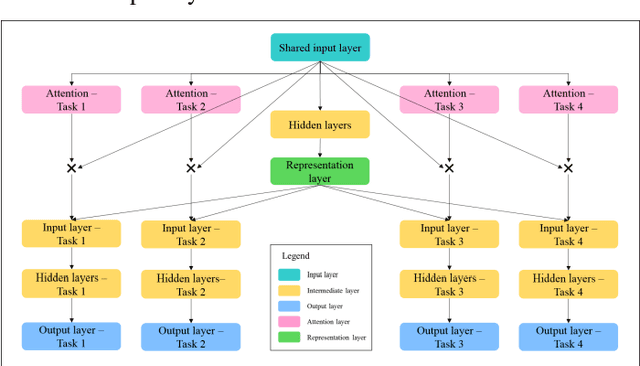
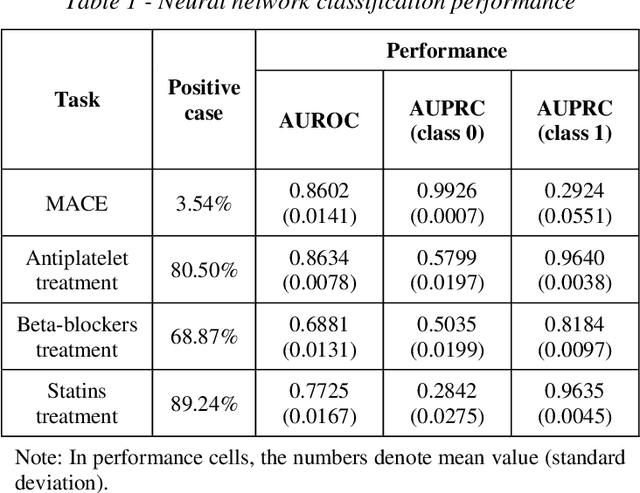
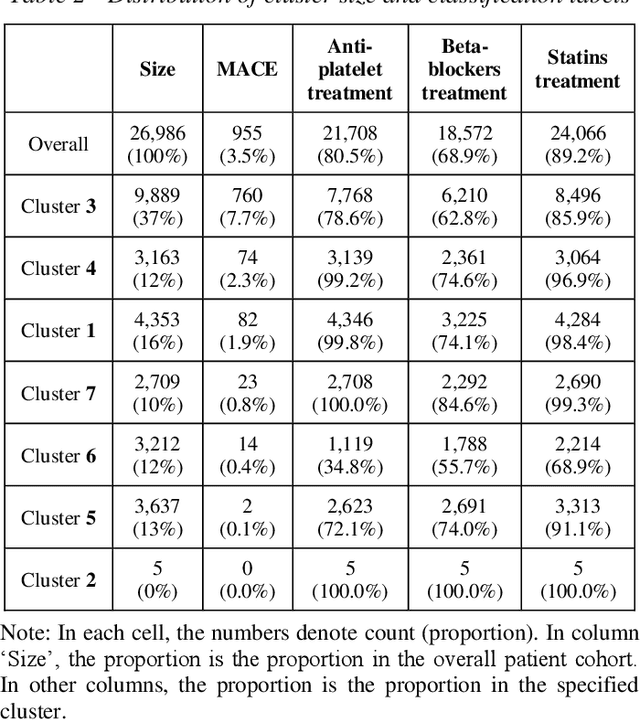
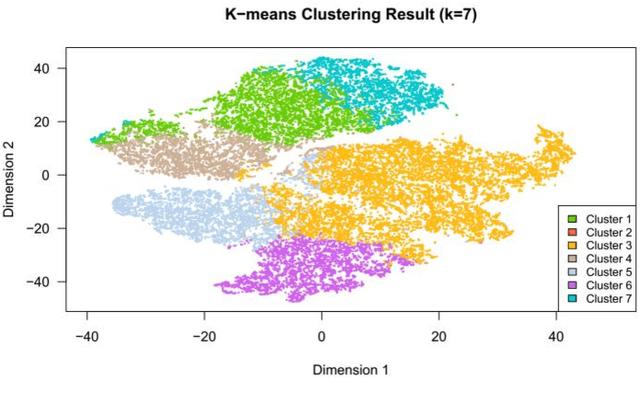
Abstract:Cluster analysis aims at separating patients into phenotypically heterogenous groups and defining therapeutically homogeneous patient subclasses. It is an important approach in data-driven disease classification and subtyping. Acute coronary syndrome (ACS) is a syndrome due to sudden decrease of coronary artery blood flow, where disease classification would help to inform therapeutic strategies and provide prognostic insights. Here we conducted outcome-driven cluster analysis of ACS patients, which jointly considers treatment and patient outcome as indicators for patient state. Multi-task neural network with attention was used as a modeling framework, including learning of the patient state, cluster analysis, and feature importance profiling. Seven patient clusters were discovered. The clusters have different characteristics, as well as different risk profiles to the outcome of in-hospital major adverse cardiac events. The results demonstrate cluster analysis using outcome-driven multi-task neural network as promising for patient classification and subtyping.
Deep Diabetologist: Learning to Prescribe Hyperglycemia Medications with Hierarchical Recurrent Neural Networks
Oct 17, 2018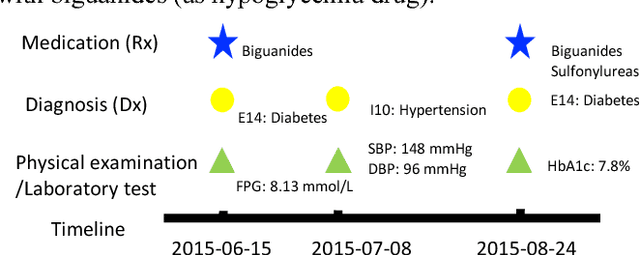
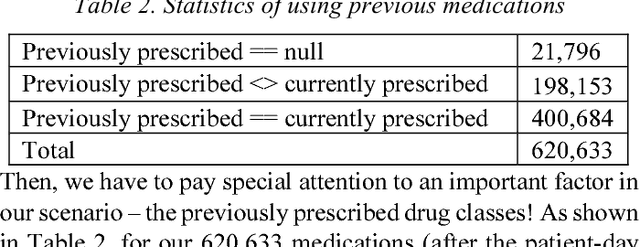
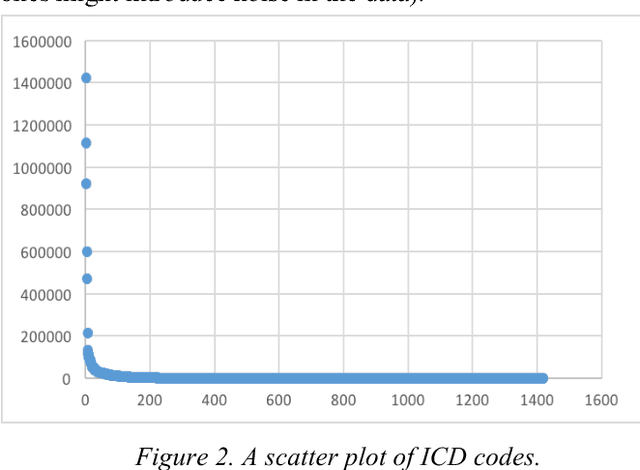
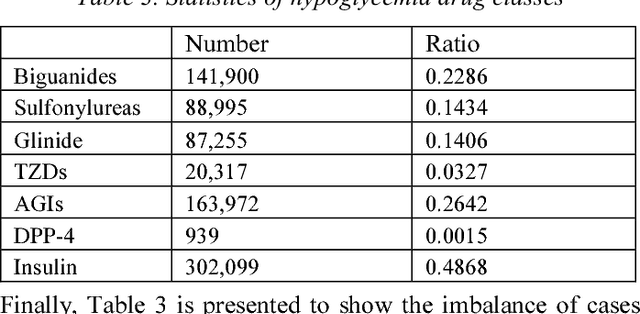
Abstract:In healthcare, applying deep learning models to electronic health records (EHRs) has drawn considerable attention. EHR data consist of a sequence of medical visits, i.e. a multivariate time series of diagnosis, medications, physical examinations, lab tests, etc. This sequential nature makes EHR well matching the power of Recurrent Neural Network (RNN). In this paper, we propose "Deep Diabetologist" - using RNNs for EHR sequential data modelling, to provide the personalized hyperglycemia medication prediction for diabetic patients. Particularly, we develop a hierarchical RNN to capture the heterogeneous sequential information in the EHR data. Our experimental results demonstrate the improved performance, compared with a baseline classifier using logistic regression. Moreover, hierarchical RNN models outperform basic ones, providing deeper data insights for clinical decision support.
Developing Knowledge-enhanced Chronic Disease Risk Prediction Models from Regional EHR Repositories
Jul 31, 2017

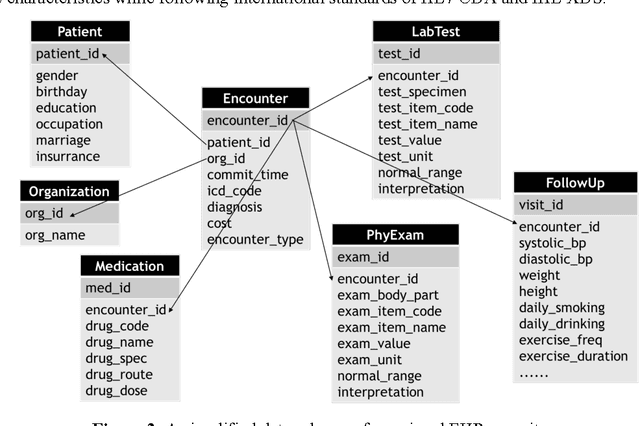

Abstract:Precision medicine requires the precision disease risk prediction models. In literature, there have been a lot well-established (inter-)national risk models, but when applying them into the local population, the prediction performance becomes unsatisfactory. To address the localization issue, this paper exploits the way to develop knowledge-enhanced localized risk models. On the one hand, we tune models by learning from regional Electronic Health Record (EHR) repositories, and on the other hand, we propose knowledge injection into the EHR data learning process. For experiments, we leverage the Pooled Cohort Equations (PCE, as recommended in ACC/AHA guidelines to estimate the risk of ASCVD) to develop a localized ASCVD risk prediction model in diabetes. The experimental results show that, if directly using the PCE algorithm on our cohort, the AUC is only 0.653, while our knowledge-enhanced localized risk model can achieve higher prediction performance with AUC of 0.723 (improved by 10.7%).
 Add to Chrome
Add to Chrome Add to Firefox
Add to Firefox Add to Edge
Add to Edge